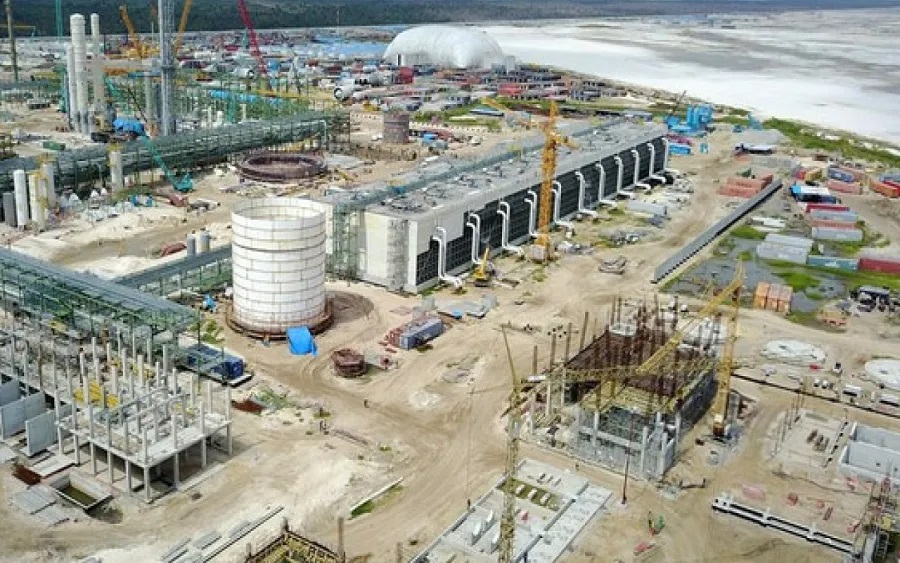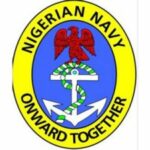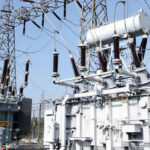The federal and indeed global stakeholders have their gaze focused on Nigeria in 2022, especially because of the reassurance by the World richest black man, Aliko Dangote, that the Dangote Refinery in Ibeju-Lekki, Lagos, reputed as the second largest refinery project in the world is billed to come on stream.
The development, an integrated refinery and petrochemical complex, will have an annual refining capacity of 10.4 million tonnes (Mt) of gasoline, in addition to 4.6Mt of diesel and 4Mt of jet fuel.
- APC convention: Supporters raise N10m to buy form for Adamu
- Unending battle for APC’s soul in Rivers as Amaechi-Abe feud resurfaces
It will also produce 0.69Mt of polypropylene, 0.24Mt of propane, 32,000t of sulphur and 0.5Mt of carbon black feed.
The complex also includes a fertiliser plant, which uses by-products from the refinery as raw materials. These are huge outputs that will also benefit the local market. The project is estimated to generate 4000 direct and 150,000 indirect jobs
Analysts believe that both in terms of its estimated production output and other value chains, it will not only save the country billions of foreign exchange spent on importation of fuel and other derivatives including fertilizer but also likely provide the pull factor for other industries.
According to the National Bureau of Statistics (NBS), Nigeria imported Premium Motor Spirit (PMS) otherwise known as petrol, worth N2.52trn between January and September 2021. This represents an increase of 55.6 percent from the N1.62trn spent within the same period in 2020.
Also situated in the same corridor is the $1.5bn Lekki Deep Seaport aimed at changing the face of maritime in the country.
The Deep Seaport is expected to become the largest deep seaport in Sub Saharan Africa as the promoters are targeting 1.5 million 20ft equivalents units container capacity yearly, which is planned to grow to about 2.7 million and 4.7 million TEUs when operations commence.
Also, within this vicinity is the Lekki Free Trade Zone projected to accommodate more than 48 companies.
Residents’ biggest concerns
Residents who spoke with Daily Trust expressed worries over the near absence of road infrastructure that will serve the seemingly huge traffic of heavy-duty trucks that will access these complexes.
Development Consultant Tony Iyare said: “My biggest worry is: where are the heavy-duty trucks that are supposed to ferry supplies and cargo from the Dangote Refinery, the Lekki Deep Seaport and the Lekki Free Trade Zone to different parts of the country going to pass?
“Many do not appreciate that these projects could translate to six times the volume of cargo presently moved on the Apapa corridor with two ports that are referred to as river ports.
“My heart bleeds for the Lekki residents when I learned that these projects are expected to be operational later this year. If Apapa which has two major outlets, has been a hell for its residents and other commuters for many years now, one can only imagine the awry nature of commuting that confronts the Lekki residents who will ply only one road.”
He argues that virtually all the roads that are meant to serve as buffers are not even in the works, leaving only the Lagos-Lekki Expressway presently choked with traffic as the only route.
“The Fourth Mainland Bridge is still on the drawing board in spite of several promises. The Lagos State Government has also been talking of a Coastal Highway and the expansion of the Lagos-Lekki Expressway from the Eleko junction to Epe, which are still in the works,” he said.
The proposed monorail conceived to run between Marina and Lekki to ease the pains of commuting in that corridor is still on the books.
Residents have said given their experience with the Okokomaiko-Marina monorail which is not yet completed after 13 years, Lekki residents may not even be hopeful of any reprieve in the immediate future.
The 1,400-kilometer Lagos-Calabar railway which ought to complement these huge projects is still far from any ground-breaking ceremony.
A spur from this rail line at Ijebu Ode could have provided the elixir by linking Ibeju Lekki.
How NPA expressed concern in 2018
As far back as 2016, suspended Managing Director Nigerian Ports Authority (NPA), Hadiza Bala Usman, had canvassed for a rail link to Lekki to stave off the potential haulage crisis envisaged to be caused by these huge projects.
Surprised that there was no plan for a rail link to Lekki in spite of these projects, she wrote to the Nigerian Railway Corporation (NRC) to ensure that this was included in their drawing board. This according to her was to prevent the likely traffic disaster of the next few years.
The extension of a rail system to the Lekki area of Lagos will help the state avert another traffic disaster in the next few years, Hadiza Bala Usman had said.
She recalled: “When we took over two years ago, there was no provision for rail connection out of Lekki, in the Deep Seaport plan, which I found quite strange that you can have a deep seaport without the need for rail connection.
“It will take you two years to build the port but five years to build the rail. So, we have written the Nigerian Railway Corporation to ensure that there is a rail connection.”
No serious effort to address anxiety – Maritime stakeholders
President of the Association of Nigerian Licensed Clearing Agent (ANLCA), Prince Iju Tony Nwagbonike, said no serious effort is seen to have been made to address stakeholders’ observations and concerns concerning the evacuation of cargoes from the Port.
Nwagbonike stated that while the completion of the project is being fast-tracked to meet the deadline, it is apparent that the evacuation of cargoes from the port is being taken for granted.
“Right from the inception of the project, stakeholders and observers have been asking questions about the method of evacuation of cargoes from the port. They had often observed the absence of a rail link to the port, and often called on the promoters of the project to address the concern,” he said.
He further stated that it was worrisome to observe that a port of this magnitude is being built without clear plans for rail connectivity and inland waterways transportation. He said, “The absence of a rail link has been confirmed by a senior official of the port who said the master plan of the project does not include rail. Though he said it was not too late to include it in the project because adjustments are possible in any ongoing project, one is surprised that not much has been said or done in this regard,” he said.
Also expressing concern, the Chief Executive Officer (CEO) Centre for Promotion of Private Enterprise (CPPE), Dr. Muda Yusuf, affirmed that the concentration of industrial and maritime activities on the Lekki corridor could pose major connectivity and logistics challenge if not proactively addressed by the Lagos State government.
He stressed the need for a multimodal transportation model to be quickly activated on the corridor.
Yusuf also urged the state government to step up efforts with regards to the creation of a BRT corridor, light rail, and development of water transportation along the corridor, while he advised a more intensive use of pipelines for the transportation of petroleum products by the Dangote refinery to depots around the country.
“The reality is that there is already serious traffic congestion along this corridor, even though these industries and ports activities are yet to commence. Although, many industries in the zone are export oriented, which means that many of the products are outbound, and the raw materials would also come through the deep seaport, “We should not underestimate the planning challenge which the industrial and maritime developments pose for the Lagos State government in particular,” he said.
However, the Acting Managing Director of the Nigerian Ports Authority (NPA), Bello-Koko, during a tour alongside the Minister of Transportation, to the Lekki Deep seaport, revealed that the Lekki port will have a truck parking area with a capacity for 300 trucks to avoid indiscriminate parking of trucks on the access road to the port when it becomes operational.
He said at the terminal area, the Customs Building will have a full-fledged examination bay for proper inspection before trucks are allowed to evacuate the area.
Lagos Commissioner for Economic Planning and Budget, Mr Sam Egube, while analysing the 2022 budget, explained that the state has plans to, among other things, construct a six-lane reinforced concrete Lekki Epe Expressway from Eleko Junction to Epe T-Junction.
“This strategic project is aimed at accommodating the increasing huge and heavy vehicular movement in the Lekki Epe axis, especially when the deep seaport and the Dangote refineries et’al come into operation,” he said.
The Commissioner for Information and Strategy, Mr Gbenga Omotoso, allayed the fear of Lagosians saying, “there is really nothing to fear.”
He mentioned that the state government is rebuilding the Lekki-Epe Expressway, which was built about 41 years ago as a two-lane road but being expanded to six lanes with very thick reinforced concrete asphalt.
“It will be able to take the traffic that is coming from the seaport and the refinery. Also, the refinery and seaport are to serve goods going outside Lagos and not the ones coming into the state.
“So, since the Epe Road is okay and also the road between Epe and Ijebu-Ode, which the Ogun State governor just reconstructed, we do not envisage that any heavy traffic will occur,” he said, adding that in addition to construction of coastal roads, regional roads along Ajah will be completed this year.
Experts say the fear over gridlock on the axis would have been addressed if the Lagos Light Rail project had been followed through.
Daily Trust reports that the Lagos Rail Mass Transit (LRMT) had captured the entire municipal and contiguous state of Lagos under six rail lines comprising red, blue, yellow, purple, green, orange lines.
The state government has promised to inaugurate the red and blue line but the yellow line from Marina to Epe is yet to be implemented.
A Professor of Transportation at the Lagos State University, Samuel Odewunmi, had in a chat with Daily Trust expressed regret that the yellow line is being neglected.
“What I want you to note which is crucial, and which we are now neglecting is the yellow line, the one from Marina to Epe. The Dangote refinery, Free Trade Zone, Lekki deep port, with all that is going on there, are going to bring heavy traffic. So honestly, it is just that they have committed heavy resources to both rail on the blue line and 8 lanes.”
It was not clear yesterday if the NRC had implemented the recommendation of the NPA on creating a rail network to link Ibeju-Lekki-Epe axis.
But a source in the NRC said it is the Ministry of Transportation that has the mandate to create a rail line.
The source who spoke with our correspondent on the condition of anonymity because he was not authorised to talk to the press said there are plans to link the seaport.
By Sunday Michael Ogwu (Abuja) Abdullateef Aliyu, Christiana T. Alabi & Eugene Agha (Lagos)

 Join Daily Trust WhatsApp Community For Quick Access To News and Happenings Around You.
Join Daily Trust WhatsApp Community For Quick Access To News and Happenings Around You.


